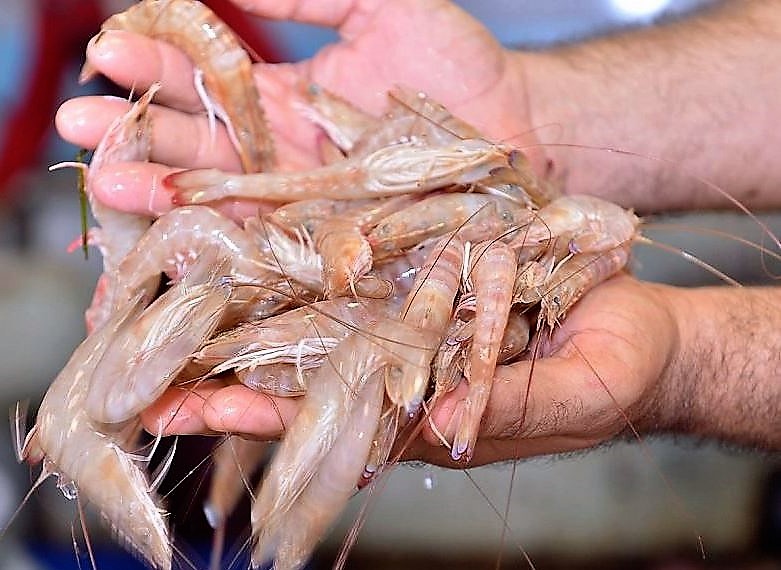
The coastal villages of the Governorates of Dhofar, Al Wusta and the South A’Sharqiyah have witnessed energetic activities, expecting a bumper season for the fisheries sector. The setting up of fishing seasons is important because it ensures a steady balance in the ecosystem, the reproduction of fish and the preservation of its strategic stocks, in addition to reducing overfishing.
The shrimp fishing season is one of the traditional professions in the Sultanate. Shrimp is one of the crustaceans and economically important species in the Sultanate due to their nutritional value and the increase in its demand in the local and international markets. Shrimp fishing is limited to the artisanal fishing sector as the Ministry of Agriculture, Fisheries and Water Resources is keen that the fishermen of the coastal villages get the utmost benefits.
**media[1146229]**
Said bin Humaid Al Hakamani from the Department of Agriculture, Fisheries and Water Resources in the Wilayat of Muhout in the Governorate of Al Wusta said, “The Governorate of Al Wusta stood first in shrimp production during the period from 2015-2019, with a production rate of 70 per cent of the total catch, followed by the Governorate of South A’Sharqiyah with a production rate of 26 per cent. The total production of shrimps traditional fishing in 2019 hit 863 tons, a decrease of 19 per cent, with a total value of about OMR9.2 million.
Exports of shrimps stood at 320 tons, and about 543 tons of it were consumed locally”.
On the importance of the fisheries sector, Said Al Hakamani told Oman News Agency (ONA) that the Sultanate has promising potentials, considering that this sector is a renewable resource capable of increasing its contribution to food security and in the domestic product. He pointed out that the Sultanate ranked 35th in the world in fish production and ranked 2nd in the Arab world, according to the latest statistics issued by the United Nation’s Food and Agriculture Organization (UN-FAO) in 2018. The Sultanate’s total production of fisheries sector reached 553,000 tons. The production almost twice-doubled between 2011-2019 from 192,000 tons to 580,000 tons at an annual growth rate of 19 per cent. The value of production doubled from OMR144 million in 2011 to OMR306 million in 2019.
**media[1146230]**
Al Hakamani added that the department has prepared for this season by organising awareness and guidance programmes and lectures for artisanal fishermen in the wilayat to introduce them to the shrimp season, laws and regulations for shrimp fishing and how to preserve this natural wealth. He stressed that the Ministry of Agriculture, Fisheries and Water Resources calls on shrimp artisanal fishermen and all companies, institutions and hotels, restaurants and individuals who deal in the areas of buying, selling, trading and exporting shrimp to adhere to the start and end dates of the shrimp fishing season and to record the quantities of shrimp they have after the end of the season. He pointed out that shrimp trading or exporting will not be allowed after the end of the season unless they are registered with the Ministry. The monitoring teams will intensify their work at the coasts of the three governorates during the season.